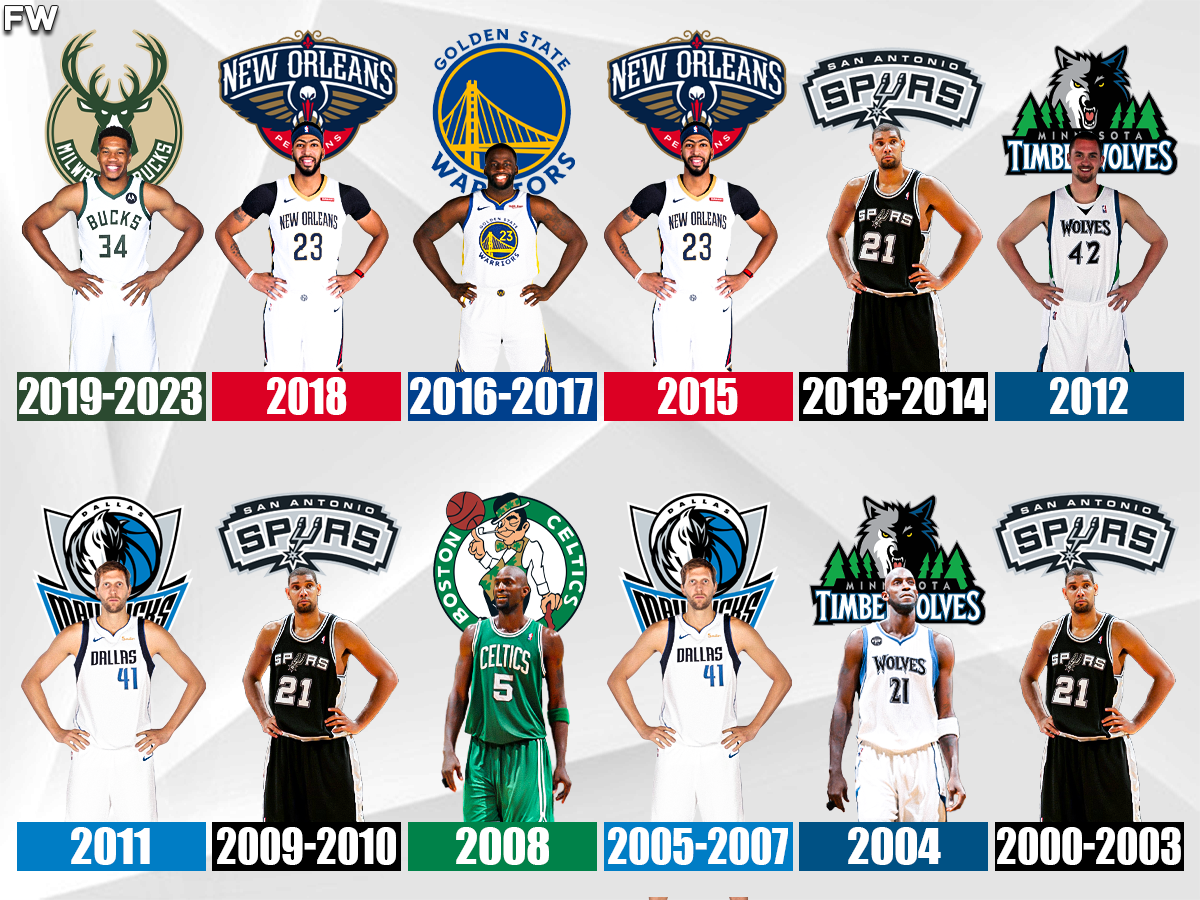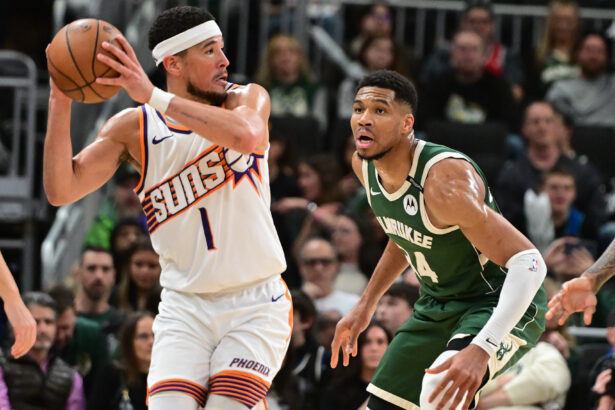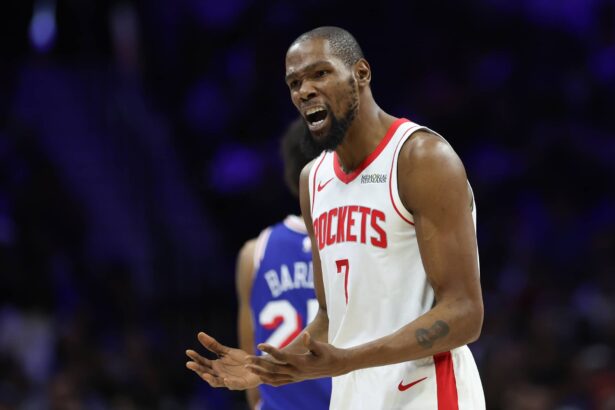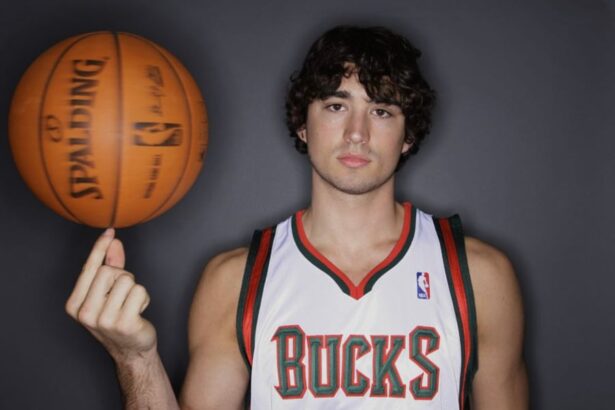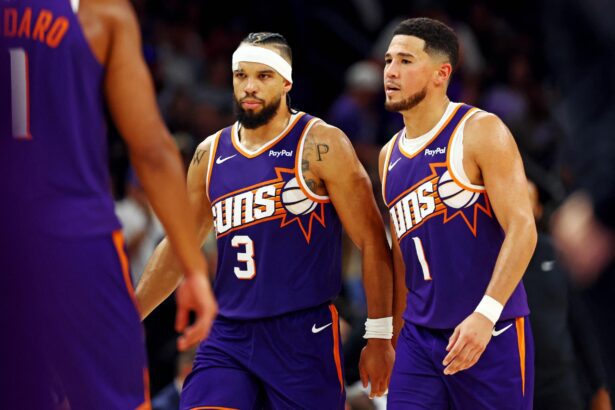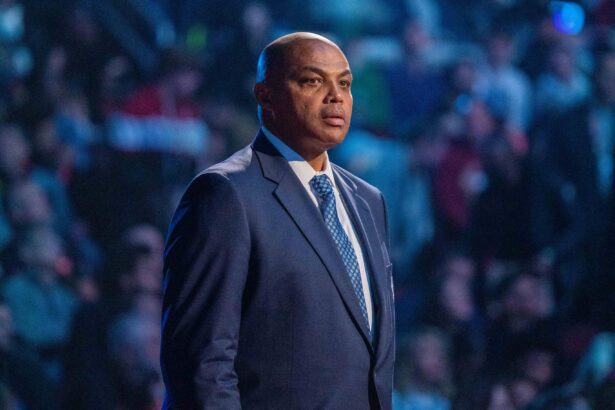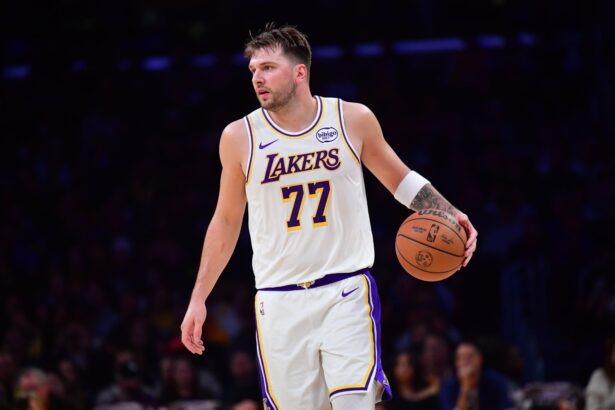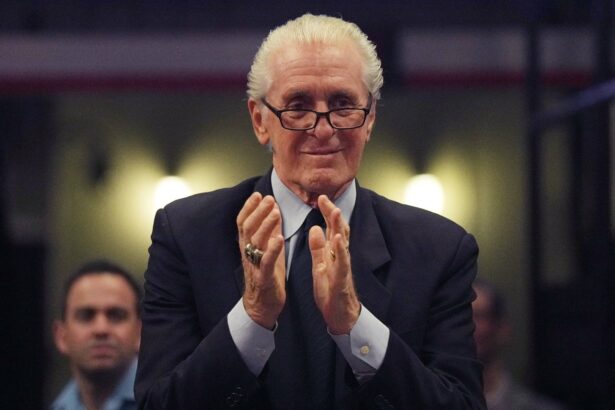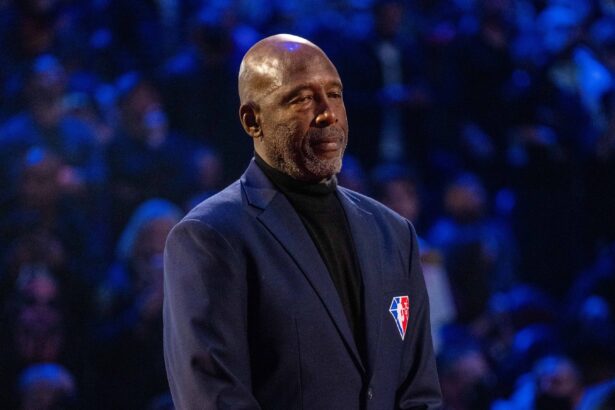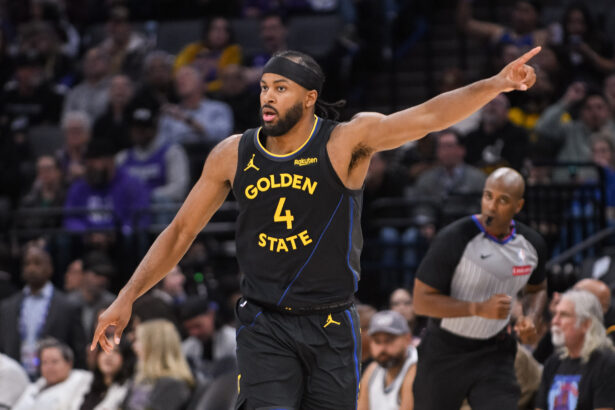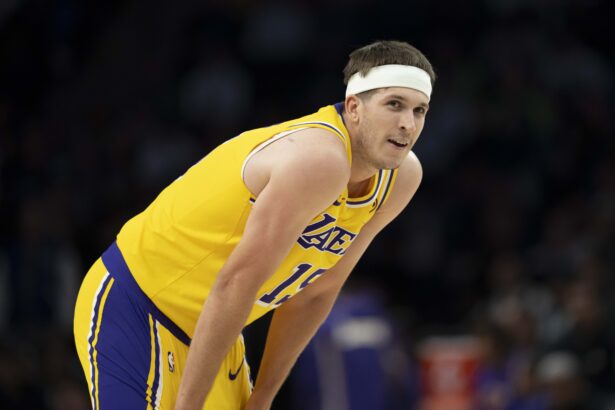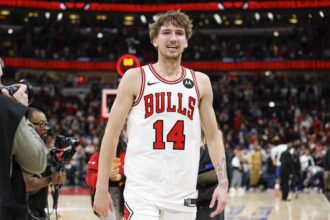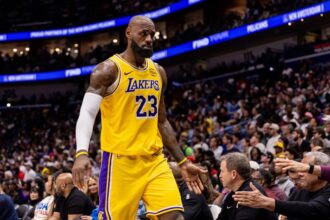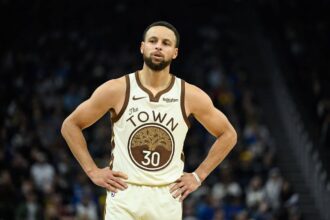- Power forwards are one of the most critical players in the modern NBA
- The greatest power forward of all time dominated the 2000s
- One player will be the best at his position for the foreseeable future
The landscape of the NBA has evolved significantly since the turn of the millennium, with each passing year witnessing the rise and fall of basketball’s brightest stars. The power forward position has seen its fair share of dominant figures who have left an indelible mark on the league’s history. From the post-up era of the early 2000s to the modern, positionless game we see today, the role of the power forward has transformed, yet its importance has remained constant.
In this comprehensive article, we embark on a journey through time, reminiscing about the standout power forwards who graced the hardwood each year since the year 2000. We have seen the greatest small forwards every season since 2000 and also took a look at which players dominated the point guard and even the shooting guard spots. Without further ado, here is the best power forward in the world every year since the 1999-00 NBA season.
2000-2003: Tim Duncan
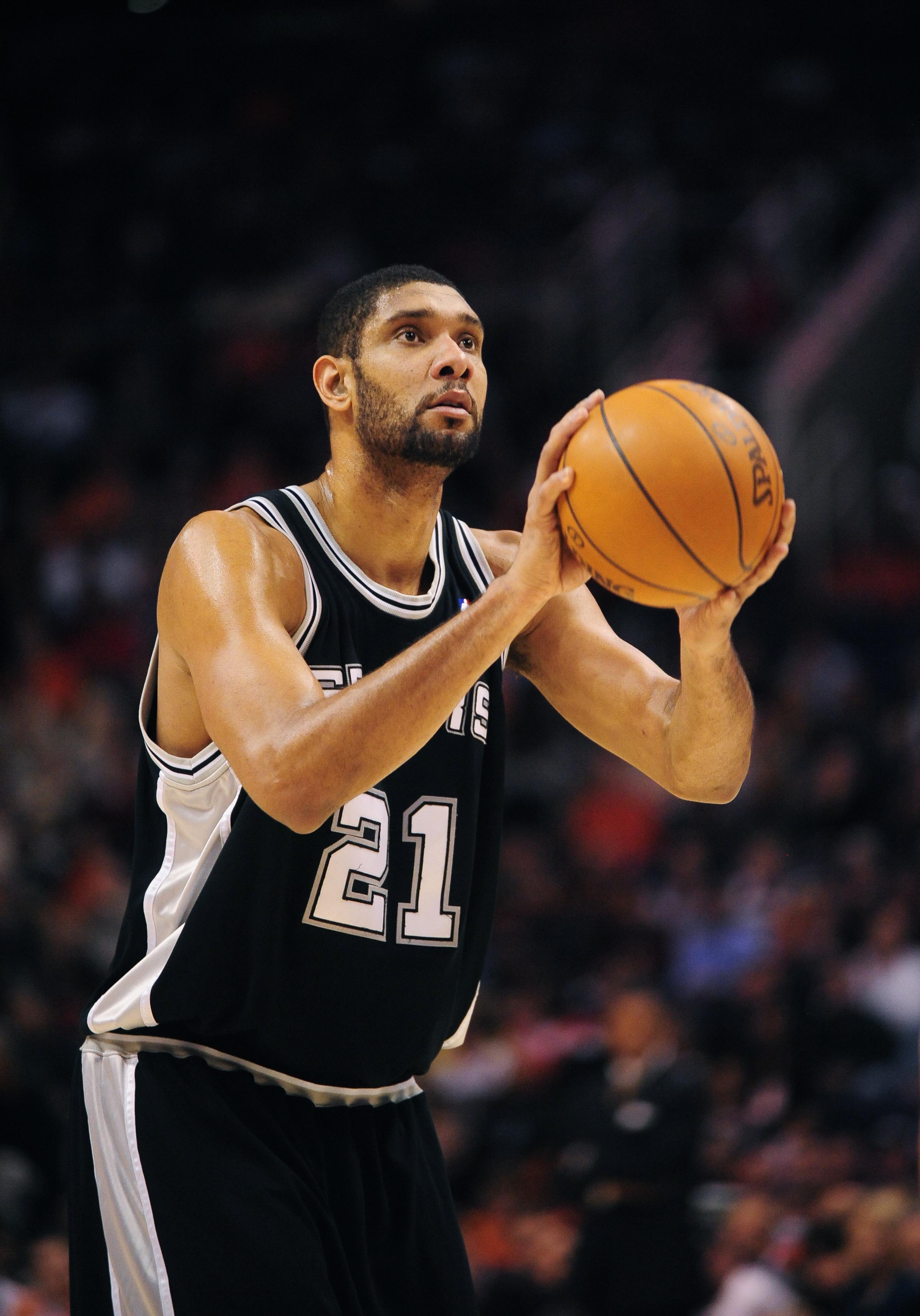
Career Stats: 19.0 PPG, 10.8 RPG, 3.0 APG, 0.7 SPG, 2.2 BPG
Career Honors And Awards: 5x NBA Champion, 3x Finals MVP, 2x MVP, 15x All-Star, 15x All-NBA Team Selection, 15x All-Defensive Team Selection, 1997-98 Rookie of the Year, Hall of Fame
Tim Duncan’s reign as the best NBA power forward from 2000 to 2003 was characterized by his unmatched consistency, leadership, and all-around skill set. He wasn’t just a scorer; he was a complete player who excelled on both ends of the floor.
Duncan’s basketball IQ was off the charts. He had a deep understanding of the game, which allowed him to make the right decisions in high-pressure situations. Whether it was his ability to read the game defensively, set screens, or make precision passes, Duncan’s basketball IQ was a key factor in his dominance.
In this period, Duncan won back-to-back MVP awards in 2002 and 2003 and also won one NBA title in 2003 against the New Jersey Nets. His best performance came in Game 6 of the 2003 NBA Finals, Duncan posted a stat line of 21 points, 20 rebounds, 10 assists, and 8 blocks, just two blocks short of a quadruple-double, to clinch the championship in a close-out victory. This performance showcased his versatility and ability to impact the game in every facet.
2004: Kevin Garnett
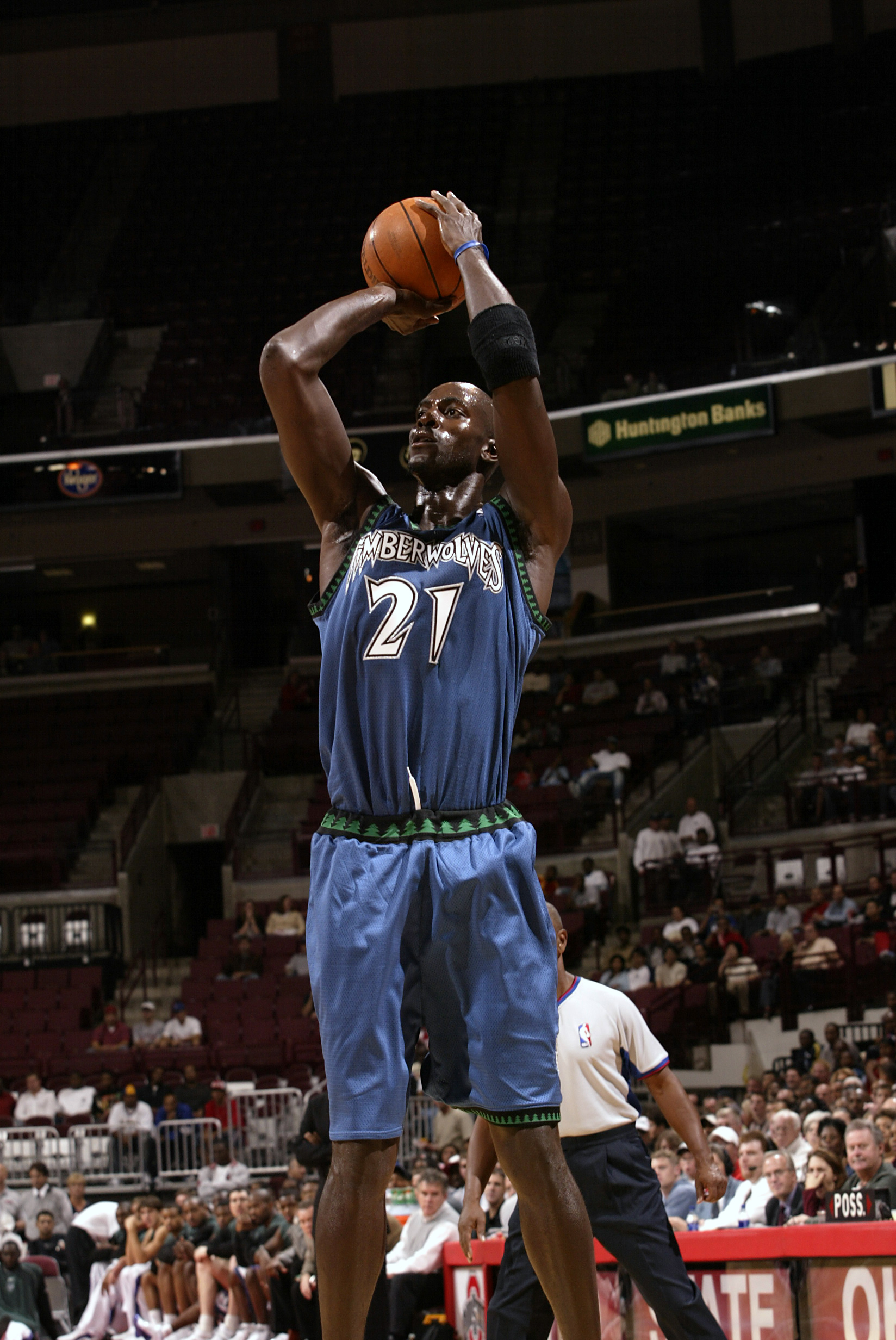
Career Stats: 17.8 PPG, 10.0 RPG, 3.7 APG, 1.3 SPG, 1.4 BPG
Career Honors And Awards: 2007-08 NBA Championship, 2003-04 MVP, 15x All-Star, 9x All-NBA Team Selection, 12x All-Defensive Team Selection, 2007-08 Defensive Player of the Year, 4x Rebounding Champion, Hall of Fame
Kevin Garnett’s dominance in the 2003-04 NBA season was remarkable. He not only won the MVP but also led the Minnesota Timberwolves to the Western Conference Finals, the deepest playoff run in the franchise’s history at that time.
Garnett’s versatility and unique skill set made him a standout power forward. He could score from anywhere on the court, whether it was in the post, mid-range, or even occasionally stepping out to hit three-pointers. His defensive prowess was unmatched, and he had the ability to guard multiple positions, making him a nightmare for opponents.
What set Garnett apart was his intensity and leadership. He was the heart and soul of the Timberwolves, setting the tone with his work ethic, defensive tenacity, and unselfishness. Garnett’s MVP season in 2003-04 was historic. He averaged a double-double with 24.2 points, 13.9 rebounds, 5.0 assists, 2.2 blocks, and 1.5 steals per game. His all-around game and leadership were key factors in his MVP win.
2005-2007: Dirk Nowitzki
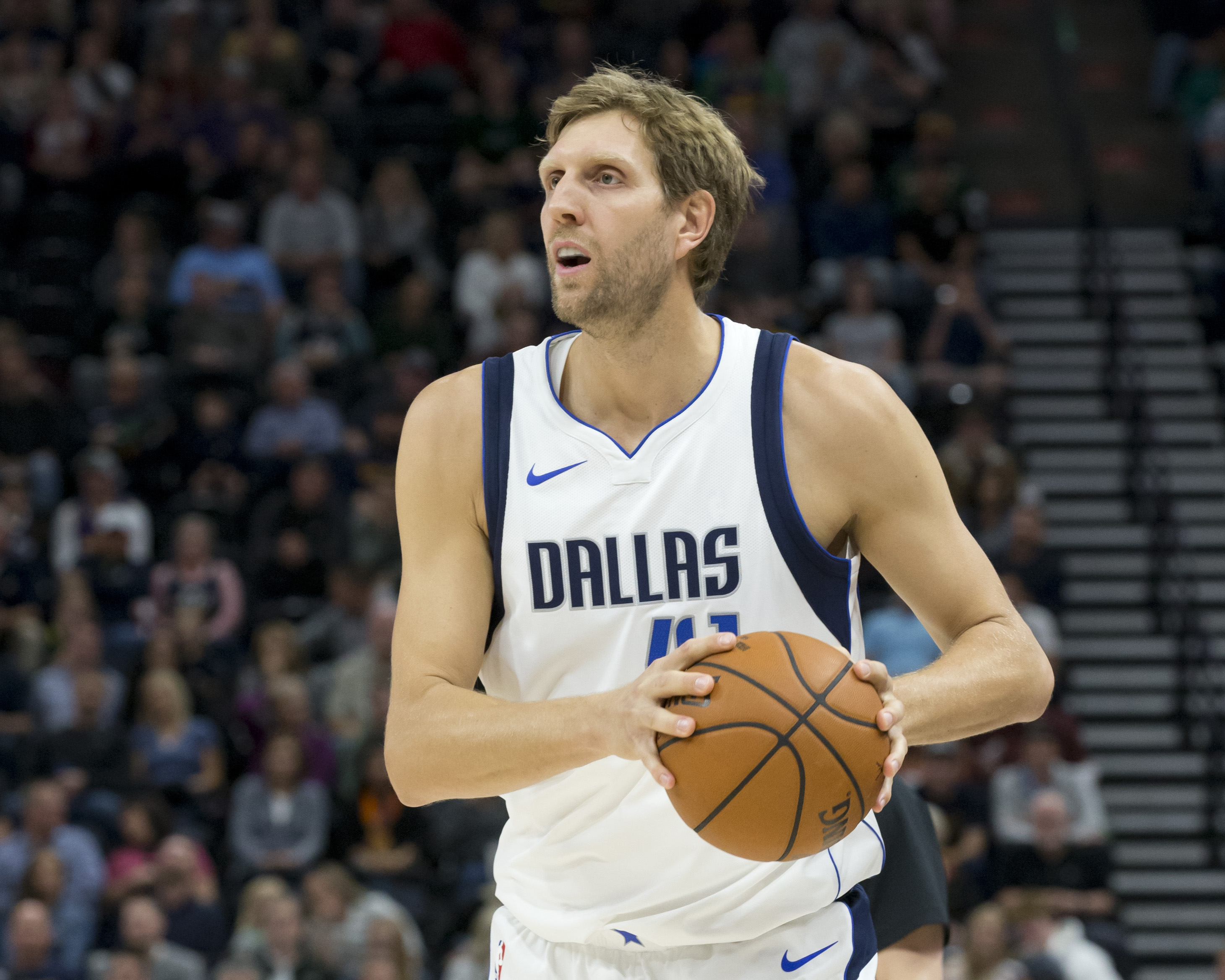
Career Stats: 20.7 PPG, 7.5 RPG, 2.4 APG, 0.8 SPG, 0.8 BPG
Career Honors And Awards: 2010-11 NBA Championship, 2010-11 Finals MVP, 2006-07 MVP, 14x All-Star, 12x All-NBA Team Selection
Dirk Nowitzki’s scoring prowess was a sight to behold between 2005 and 2007. He had an uncanny ability to score from anywhere on the court. His signature one-legged fadeaway was nearly impossible to defend, and he was equally deadly from beyond the arc. His scoring versatility allowed the Dallas Mavericks to run their offense through him, making him the focal point of their success.
The German averaged 25.7 points per game on 48.0% from the field, 40.6% from three, and 89.0% from the free-throw line while also chipping in 9.2 rebounds per game which was impressive for a finesse player. Along with his stats, Nowitzki’s leadership qualities were crucial to the Mavericks’ success during this period because the team made the NBA Finals in 2006 but lost to the Miami Heat.
A year later, in 2007, Nowitzki won league MVP by averaging 24.6 points, 8.9 rebounds, and 3.4 assists per game on 50.2% from the field, 41.6% from three, and 90.4% from the strip in an iconic 50-40-90 season. Even if the Mavericks were defeated in the first round by the Golden State Warriors, Nowitzki was the man at the power forward spot.
2008: Kevin Garnett
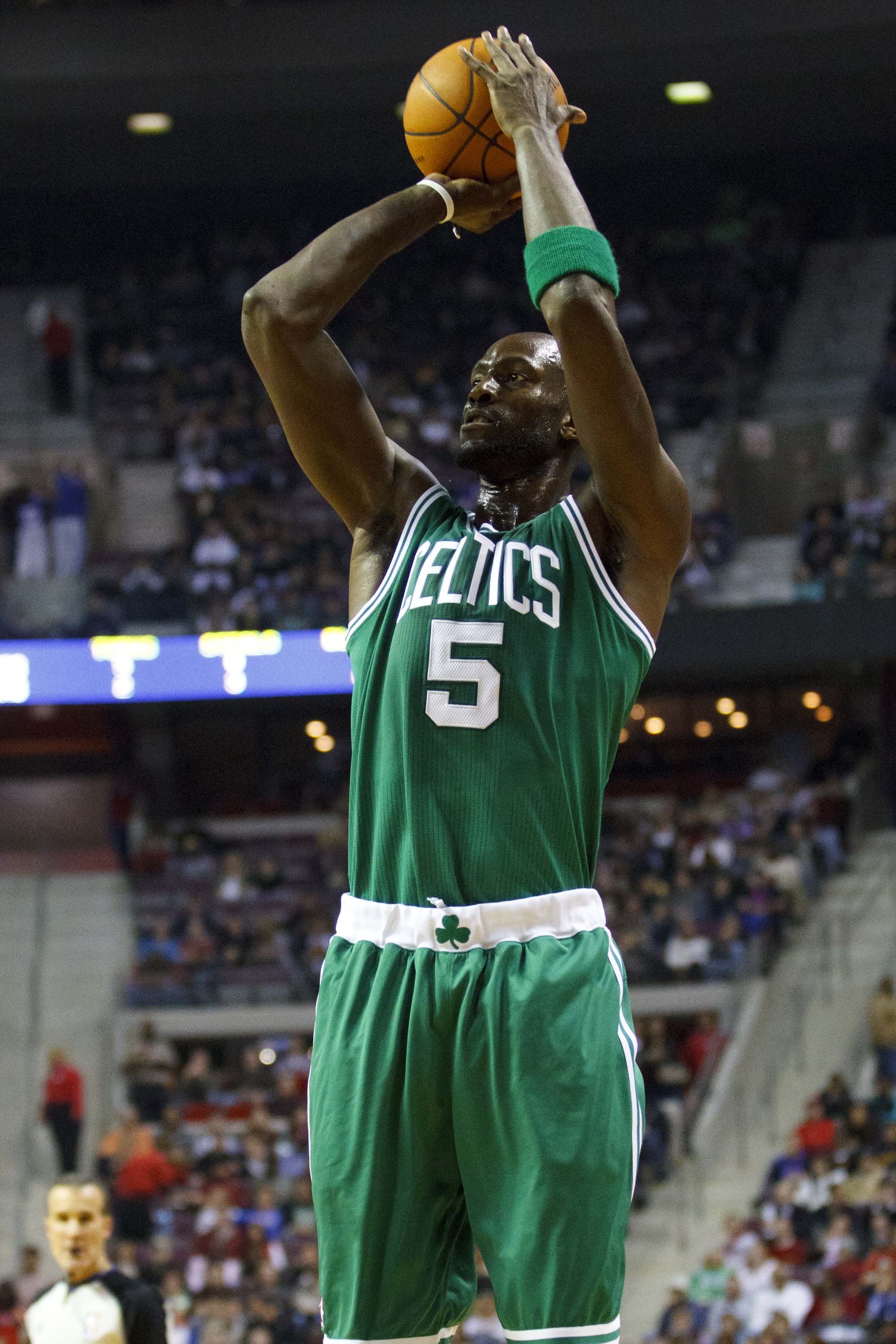
Career Stats: 17.8 PPG, 10.0 RPG, 3.7 APG, 1.3 SPG, 1.4 BPG
Career Honors And Awards: 2007-08 NBA Championship, 2003-04 MVP, 15x All-Star, 9x All-NBA Team Selection, 12x All-Defensive Team Selection, 2007-08 Defensive Player of the Year, 4x Rebounding Champion, Hall of Fame
Kevin Garnett’s 2007-08 NBA season was a career-defining year for him. Joining forces with Paul Pierce and Ray Allen in Boston, the Celtics became an instant powerhouse in the Eastern Conference. Their playoff push was impressive, defeating the Atlanta Hawks in seven games, the LeBron James-led Cavaliers in seven games, and the Detroit Pistons in six games. In the Finals against Kobe Bryant and the Lakers, the Celtics won in six games.
Garnett’s defensive prowess was the cornerstone of his impact during this season. His intensity and basketball IQ on defense elevated the entire team’s performance. His ability to guard multiple positions, disrupt passing lanes, and protect the rim made the Celtics one of the league’s top defensive teams.
The Big Ticket ended up winning Defensive Player of the Year by averaging 18.8 points, 9.2 rebounds, 3.4 assists, 1.4 steals, and 1.3 blocks per game. Garnett was not only a dynamic post defender, but his vocal leadership was critical for the Boston Celtics winning 66 games in the regular season and eventually, winning the championship.
2009-10: Tim Duncan
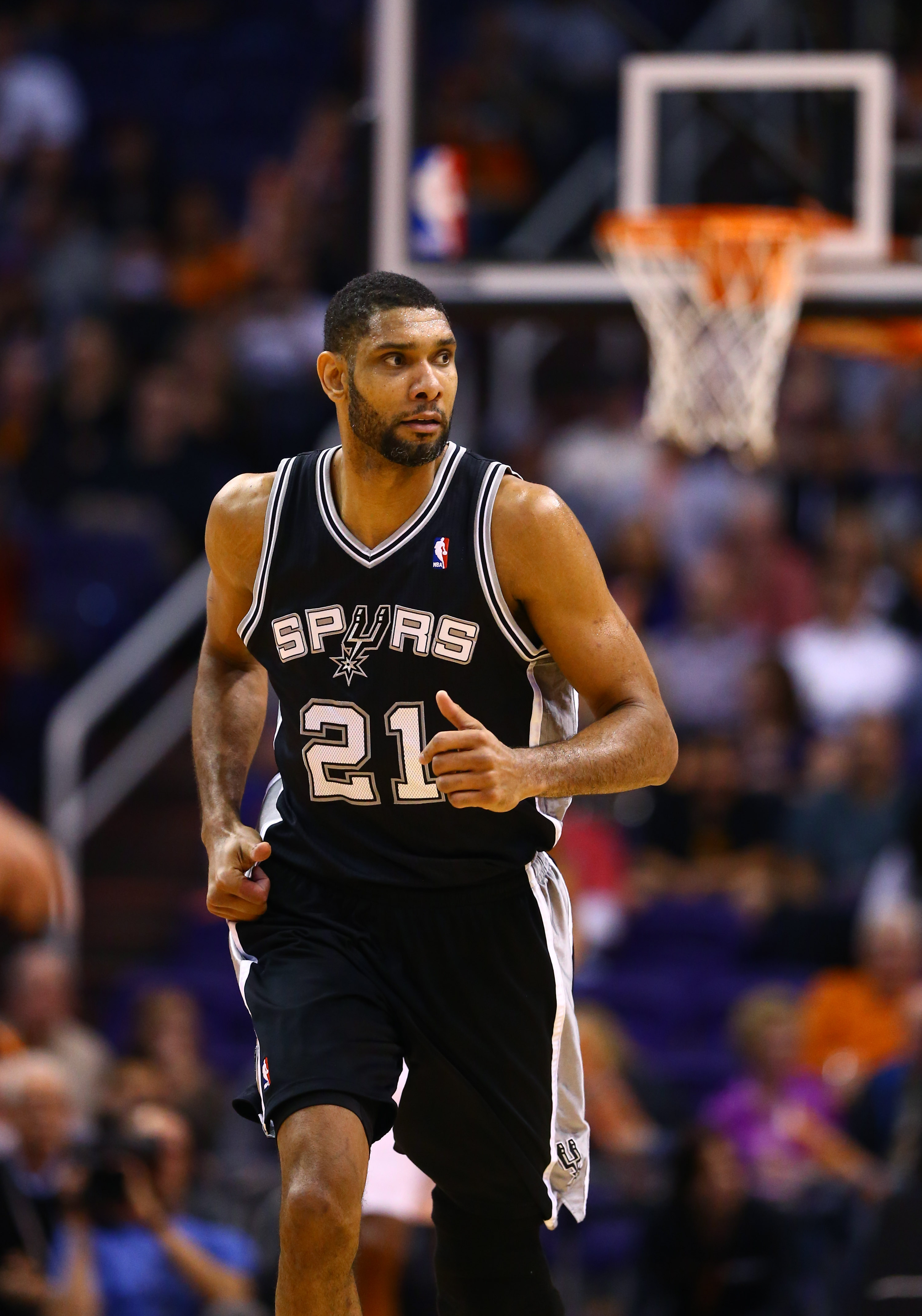
Career Stats: 19.0 PPG, 10.8 RPG, 3.0 APG, 0.7 SPG, 2.2 BPG
Career Honors And Awards: 5x NBA Champion, 3x Finals MVP, 2x MVP, 15x All-Star, 15x All-NBA Team Selection, 15x All-Defensive Team Selection, 1997-98 Rookie of the Year, Hall of Fame
Tim Duncan already had four NBA championships by the time the 2009 season rolled around, but he was without a doubt the best at his position in that season and also in 2010. What made Duncan’s seasons in 2009 and 2010 remarkable was his ability to maintain an elite level of play well into his 30s. He showcased his durability, skill, and basketball IQ, which allowed him to continue competing at the highest level.
The Big Fundamental averaged 18.6 points, 10.4 rebounds, 3.3 assists, 0.5 steals, and 1.6 blocks per game with the San Antonio Spurs and while his numbers were impressive, the power forward was dominant defensively. He was suffocating in the post and the Spurs managed 54 wins and 50 wins respectively in 2009 and 2010, respectively. Even when Duncan would lose a step shortly after, Duncan’s impact was extraordinary.
2011: Dirk Nowitzki
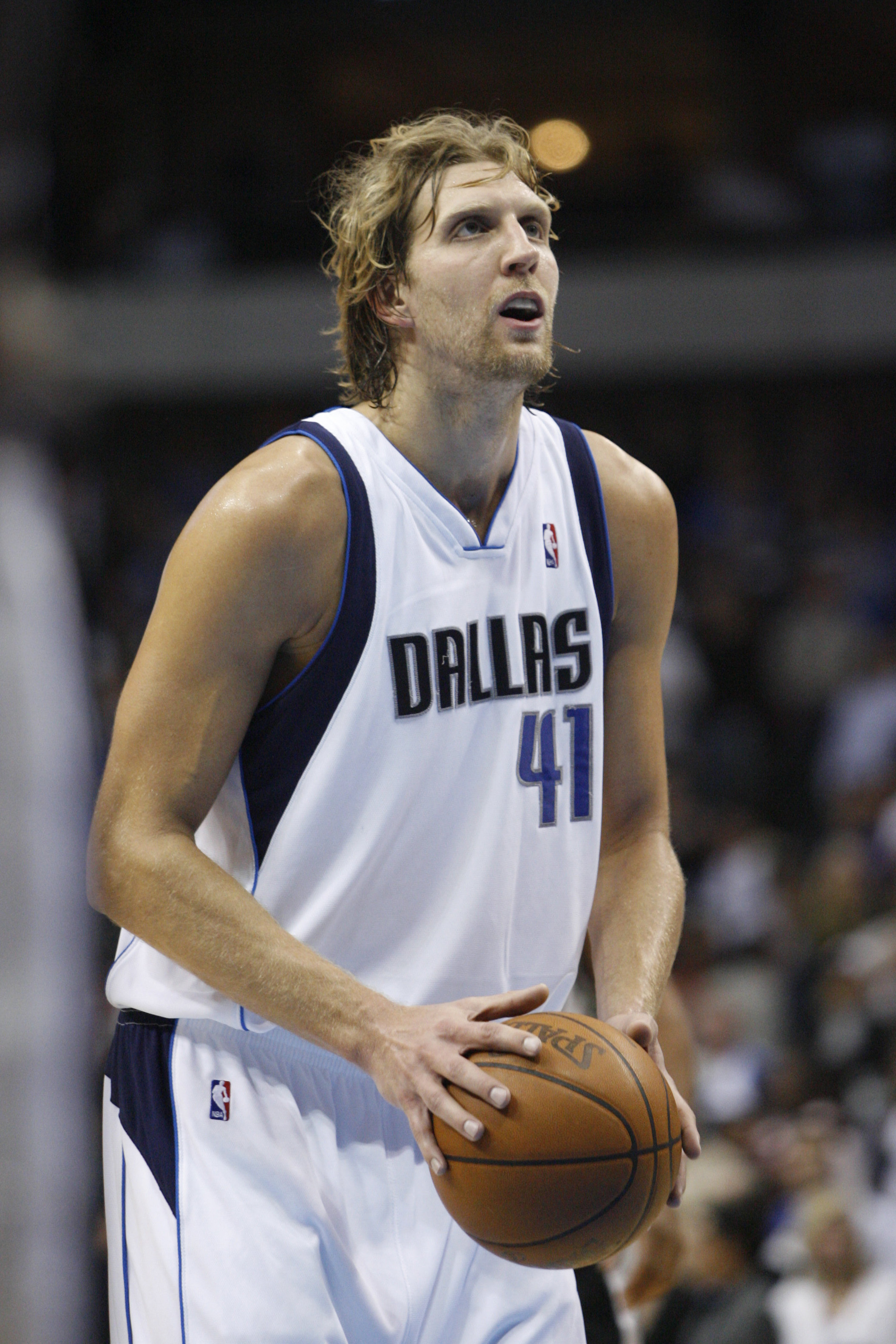
Career Stats: 20.7 PPG, 7.5 RPG, 2.4 APG, 0.8 SPG, 0.8 BPG
Career Honors And Awards: 2010-11 NBA Championship, 2010-11 Finals MVP, 2006-07 MVP, 14x All-Star, 12x All-NBA Team Selection
Dirk Nowitzki’s 2010-11 season was a defining moment in his career and in NBA history. He not only secured his first NBA championship but also did so with a level of individual excellence that few players have ever matched.
Nowitzki’s scoring ability was the cornerstone of his impact during this season as he posted 23.0 points per game in the regular season and 27.7 in the playoffs. His one-legged fadeaway was virtually impossible to defend, and he had a knack for making clutch shots in crucial moments. His leadership and ability to carry the Mavericks on his back during the playoffs were remarkable.
In the NBA Finals against the Miami Heat, Nowitzki faced formidable opponents, including LeBron James and Dwyane Wade. However, he rose to the occasion, demonstrating his ability to perform on the biggest stage. His perseverance and resilience were inspirational to his teammates and fans alike as he captured the Finals MVP trophy.
2012: Kevin Love
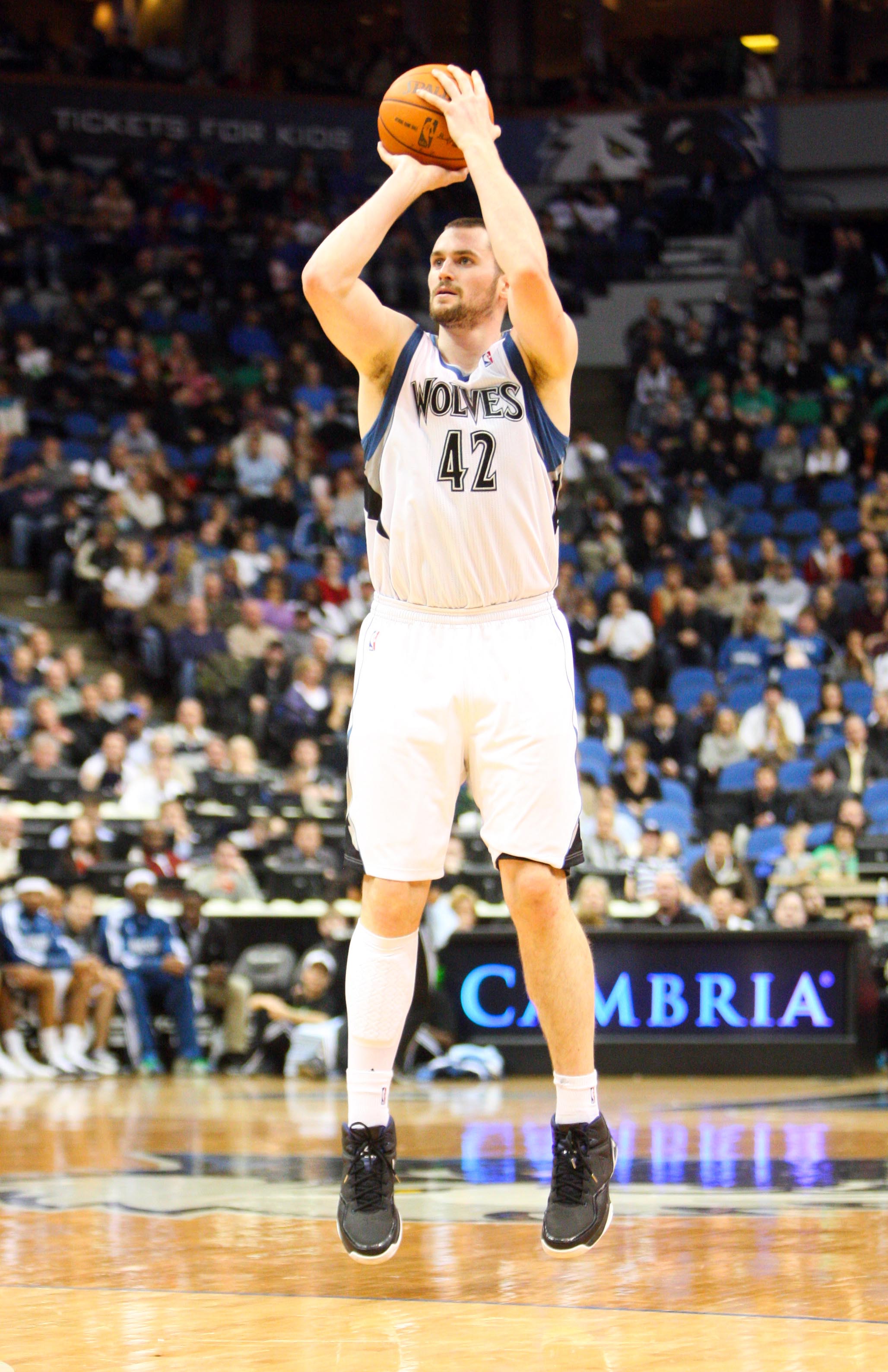
Career Stats: 16.9 PPG, 10.4 RPG, 2.3 APG, 0.6 SPG, 0.4 BPG
Career Honors And Awards: 2015-16 NBA Champion, 5x All-Star, 2x All-NBA Team Selection, 2010-11 Most Improved Player, 2010-11 Rebounds Champion
Kevin Love earned his second consecutive NBA All-Star selection in the 2011-12 season, highlighting his status as the league’s top power forward after winning Most Improved Player the year prior. During the 2011-12 season, Kevin Love embarked on a remarkable double-double streak, recording double-digit points and rebounds in 53 consecutive games.
This achievement underscored his rebounding prowess and consistency. Love’s versatility as a power forward was evident in his ability to score both inside and outside the paint. He averaged 26.0 points and 13.3 rebounds per game, showcasing his scoring ability and dominance on the boards.
His ability to stretch the floor with his three-point shooting made him a versatile offensive threat (37.2%). He could score in the post, knock down mid-range jumpers, and stretch the defense by connecting from beyond the arc. His scoring versatility was complemented by his rebounding tenacity, as he finished second in the league behind Dwight Howard.
2013-2014: Tim Duncan
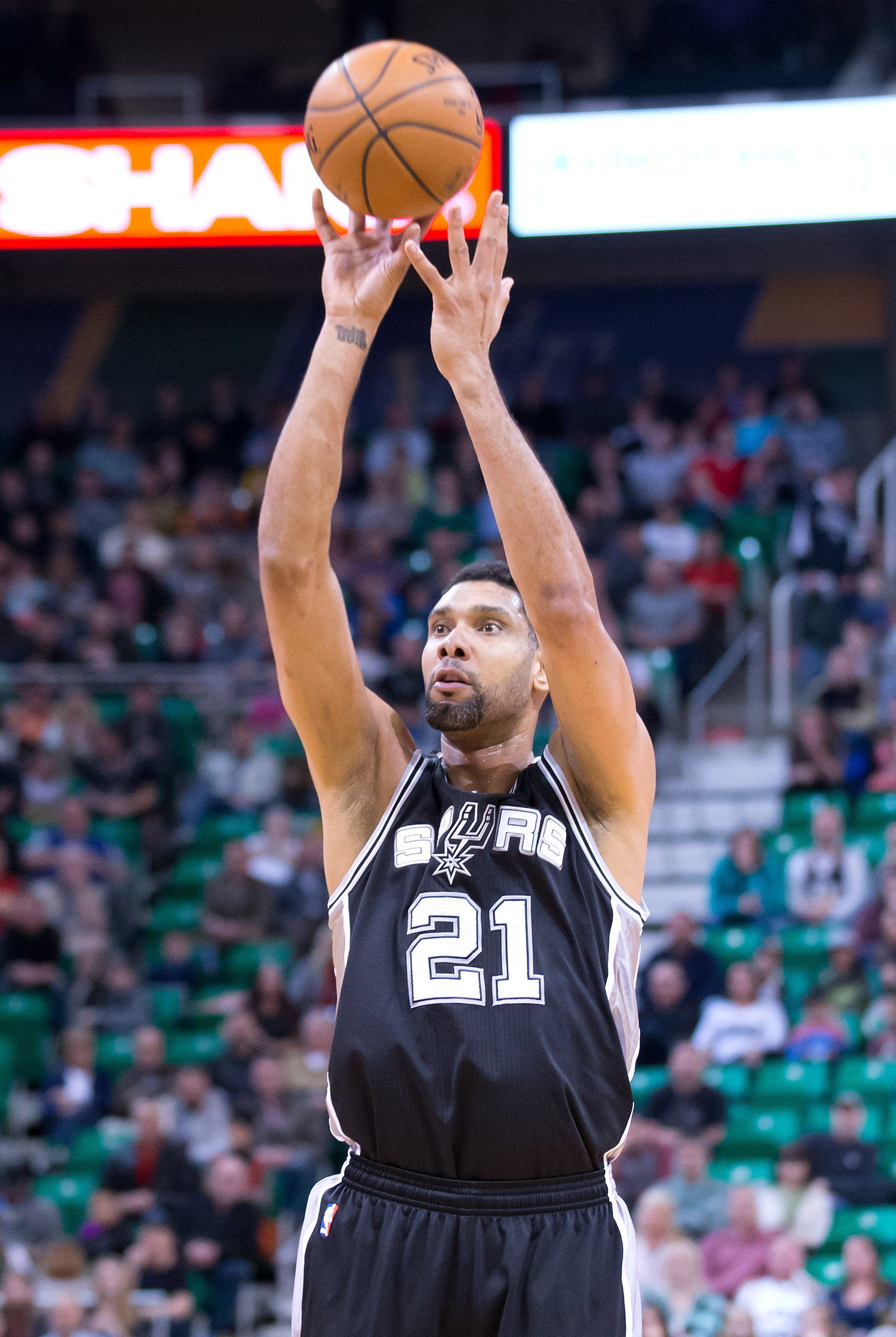
Career Stats: 19.0 PPG, 10.8 RPG, 3.0 APG, 0.7 SPG, 2.2 BPG
Career Honors And Awards: 5x NBA Champion, 3x Finals MVP, 2x MVP, 15x All-Star, 15x All-NBA Team Selection, 15x All-Defensive Team Selection, 1997-98 Rookie of the Year, Hall of Fame
Tim Duncan was not in his prime in the 2013 and 2014 seasons, but based on pure impact and dominance on both ends of the floor, he was the best at his position as a member of the dynasty San Antonio Spurs. Duncan’s leadership was instrumental in the San Antonio Spurs’ championship runs during these seasons.
His basketball IQ, unselfishness, and willingness to do whatever it took to win set the tone for the team. He demonstrated his clutch play in crucial moments, making key defensive stops and scoring when it mattered most. In 2013, the Spurs won 58 games with the big man as the undisputed leader of the team before making it to the NBA Finals in a losing effort.
In 2014, Kawhi Leonard was the best player on the team, but Duncan was the leader and best power forward in the NBA. Due to his playmaking out of the post and dominant defense, Duncan helped the Spurs make it to the NBA Finals again before blowing out the Miami Heat in five games to win his fifth NBA championship and solidify his legacy as the best power forward of all time.
2015: Anthony Davis
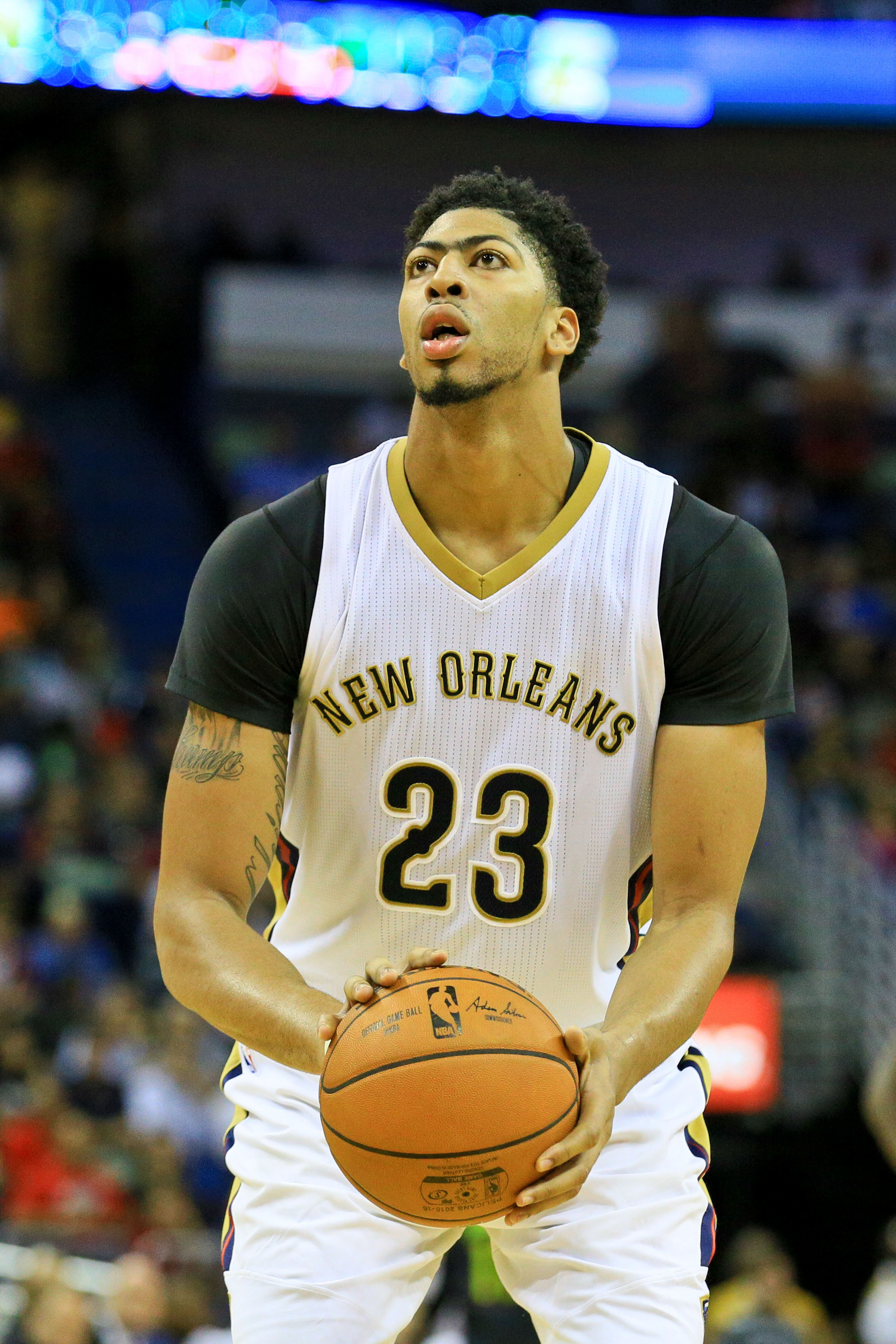
Career Stats: 24.0 PPG, 10.4 RPG, 2.4 APG, 1.3 SPG, 2.3 BPG
Career Honors And Awards: 2019-20 NBA Champion, 8x All-Star, 4x All-NBA Team Selection, 4x All-Defensive Team Selection, 2016-17 All-Star Game MVP, 3x Blocks Champion
Anthony Davis shuffled between the power forward and center position throughout his prime, but when he played power forward, he dominated the court better than anyone else. Anthony Davis earned his second NBA All-Star selection in the 2014-15 season, highlighting his status as one of the league’s rising stars at 21 years old.
Davis had a remarkable statistical season in 2014-15, averaging 24.4 points, 10.2 rebounds, 2.9 blocks, and 1.5 steals per game. His versatility as a big man made him a force on both ends of the floor as he led the league in blocks per game. It was impressive to see the rise of a player who was as impressive as Tim Duncan was early on in his career.
No doubt, Davis had his breakout campaign as a legitimate superstar in the 2015 season because his ability to do everything on the court at a high level was truly tremendous. The New Orleans Pelicans also won 45 games and made it to the playoffs.
2016-2017: Draymond Green
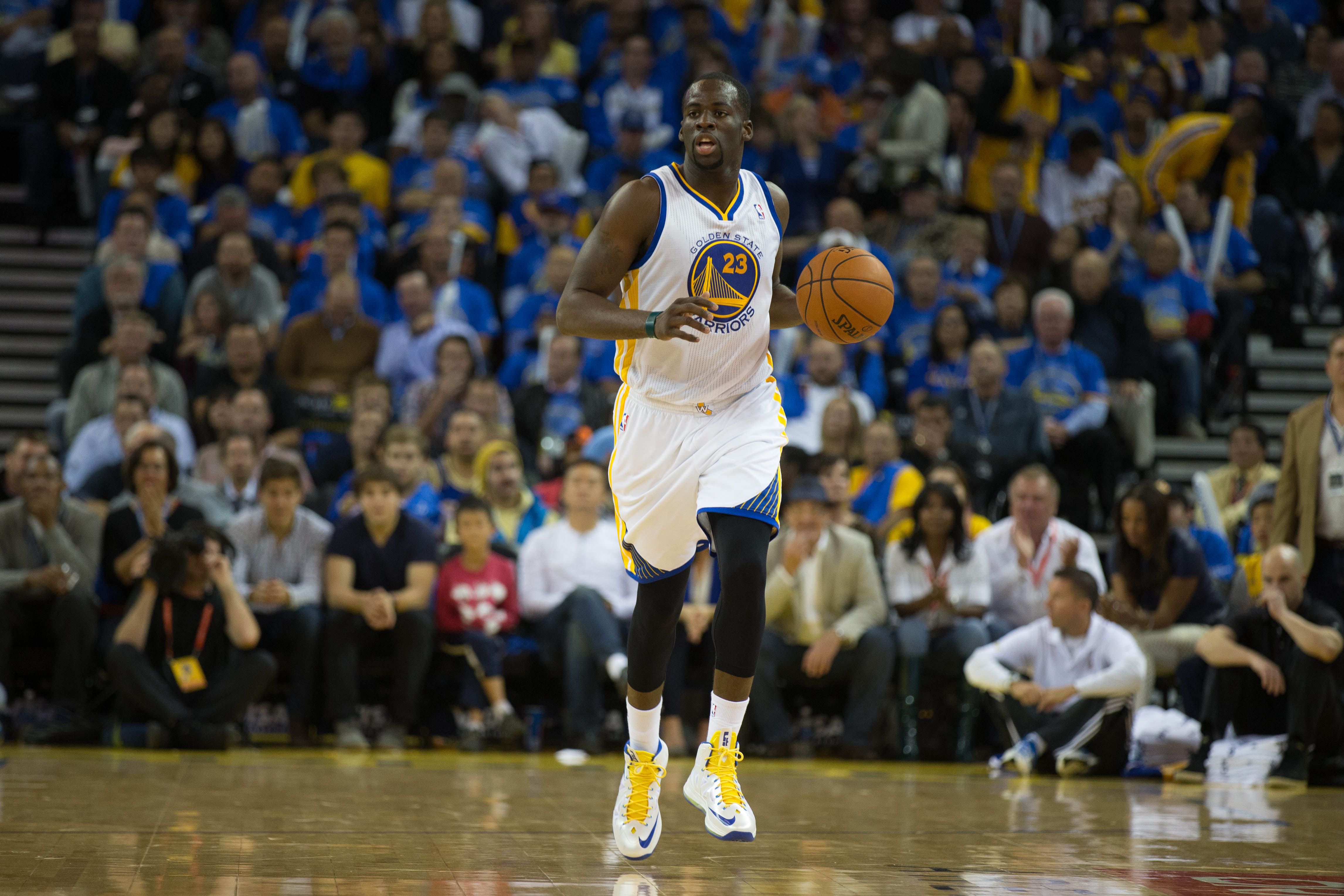
Career Stats: 8.7 PPG, 7.0 RPG, 5.6 APG, 1.4 SPG, 1.0 BPG
Career Honors And Awards: 4x NBA Champion, 4x All-Star, 2x All-NBA Team Selection, 8x All-Defensive Team Selection, 2016-17 Defensive Player of the Year, 2016-17 Steals Champion
Draymond Green’s 2015-16 season was characterized by his exceptional defensive prowess, versatility, and leadership for the Golden State Warriors. While he didn’t have the gaudy scoring numbers of some other power forwards, his impact on the game extended well beyond the box score as he made his first All-Star Team.
Defensively, Green was the anchor of the Warriors’ defense. His ability to switch onto guards and protect the rim made him a unique and invaluable asset. His triple-doubles were a testament to his all-around contributions as he posted 14.0 points, 9.5 rebounds, and 7.4 assists per game. Perhaps Green’s most significant contribution was his leadership and intangibles as he was crucial in the team’s success during their historic 73-win season.
In 2016-17, Green ended up winning Defensive Player of the Year as he led the NBA in steals per game and continued to be the best defender in the world. Along with being the primary defensive stalwart on the Golden State Warriors that welcomed Kevin Durant, Green was the undisputed leader of the team on and off the floor and had an exceptional two seasons in 2016 and 2017.
2018: Anthony Davis
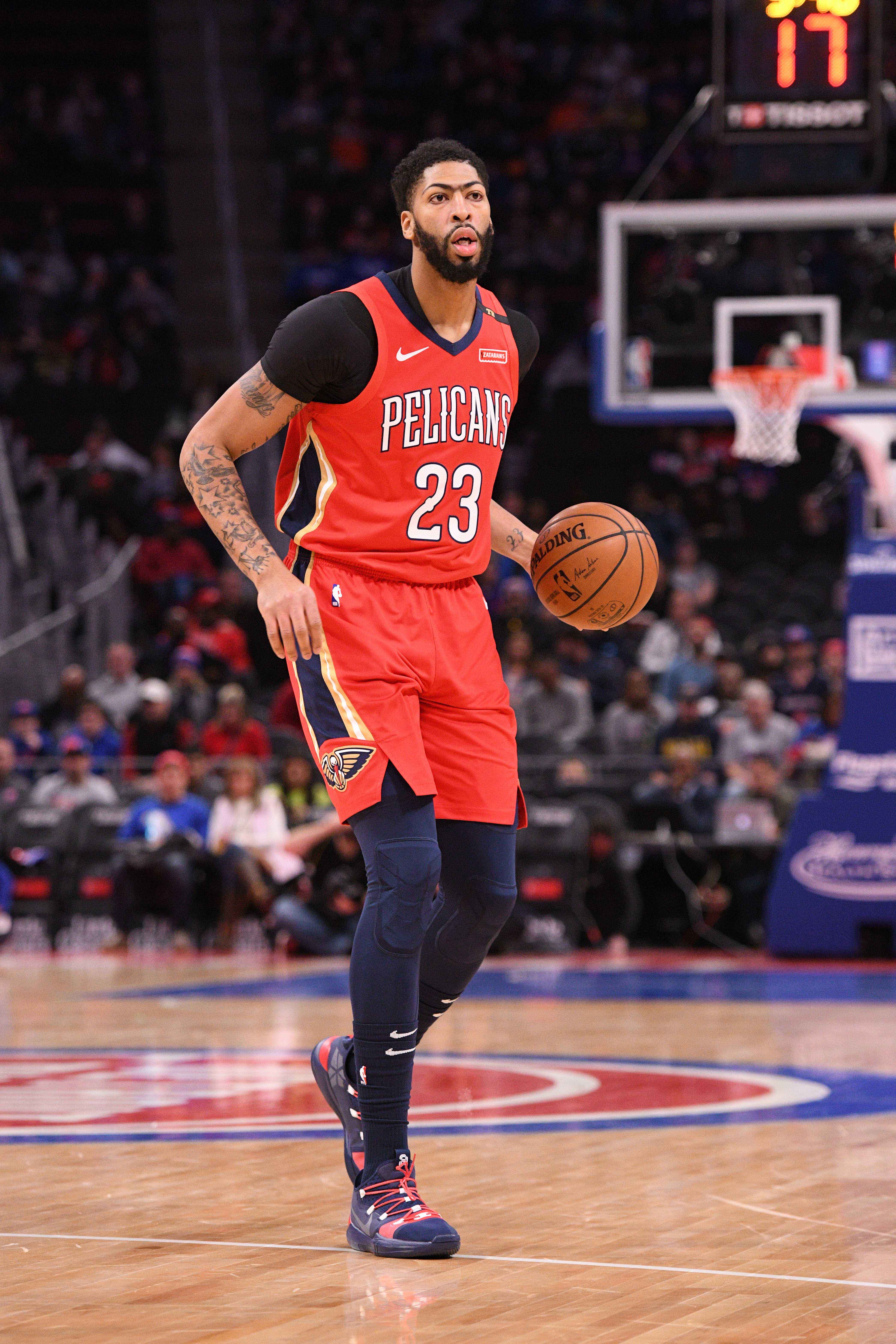
Career Stats: 24.0 PPG, 10.4 RPG, 2.4 APG, 1.3 SPG, 2.3 BPG
Career Honors And Awards: 2019-20 NBA Champion, 8x All-Star, 4x All-NBA Team Selection, 4x All-Defensive Team Selection, 2016-17 All-Star Game MVP, 3x Blocks Champion
Anthony Davis’s 2017-18 season was another showcase of his remarkable two-way ability and versatility as a power forward. He was not only a dominant scorer but also an elite defender, making him one of the most complete players in the league.
Offensively, Davis was a force to be reckoned with. He had a diverse scoring arsenal, which included post moves, mid-range jumpers, and three-point shooting. His ability to stretch the floor as a big man made him a matchup nightmare for opponents and he averaged 28.1 points per game on 53.4% from the field, 34.0% from three, and 82.8% from the stripe.
Defensively, Davis’s shot-blocking and rim protection were extraordinary as he led the NBA in blocks per game (2.6). His ability to contest shots and alter opponents’ attempts at the rim made him a game-changer on that end. Additionally, his quick hands and ability to generate steals added to his defensive prowess and it was getting scary how good the 24-year-old was.
2019-2023: Giannis Antetokounmpo
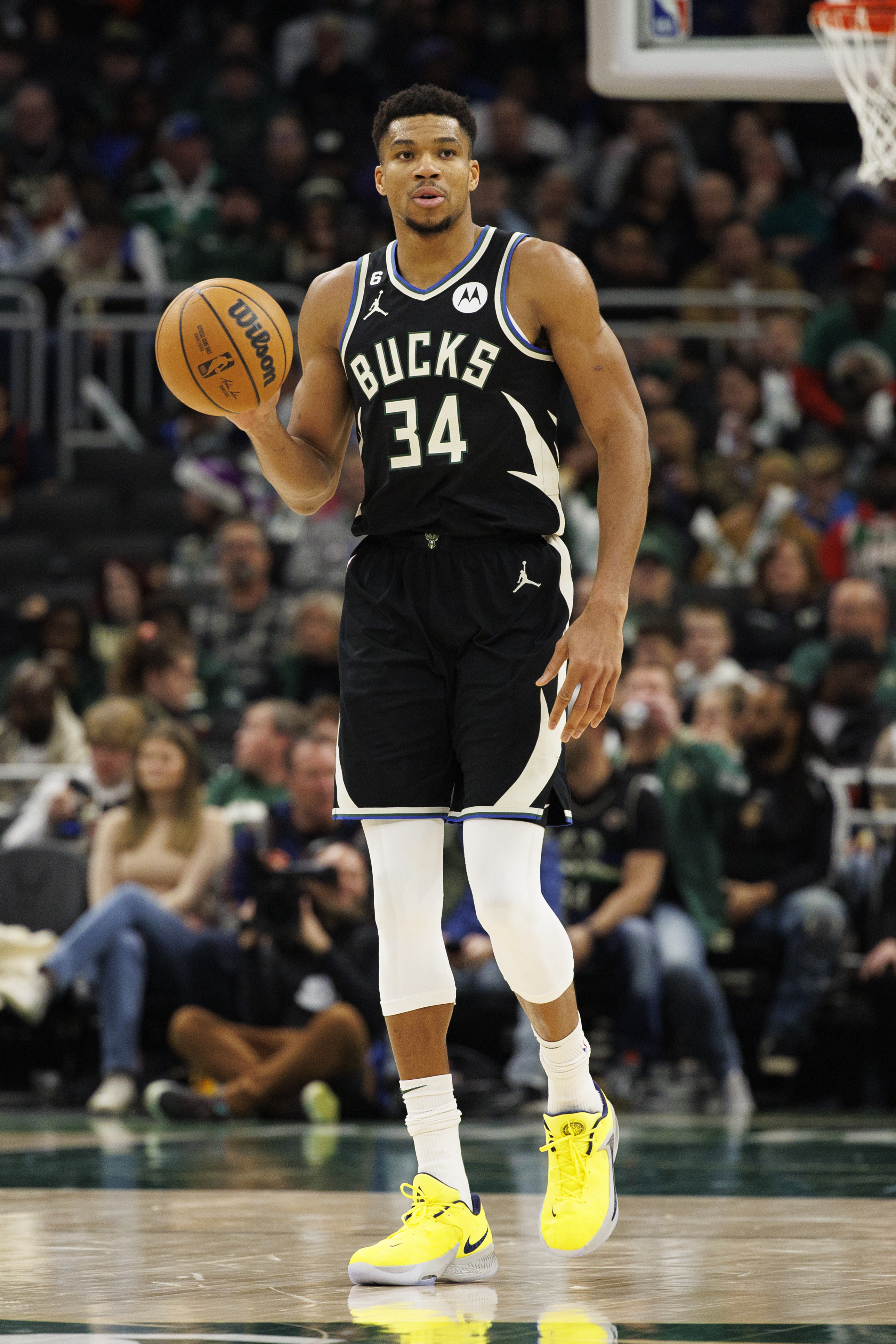
Career Stats: 22.6 PPG, 9.6 RPG, 4.7 APG, 1.1 SPG, 1.3 BPG
Career Honors And Awards: 2020-21 NBA Champion, 2020-21 Finals MVP, 2x MVP, 7x All-Star, 7x All-NBA Team Selection, 5x All-Defensive Team Selection, 2019-20 Defensive Player of the Year, 2016-17 Most Improved Player, 2020-21 All-Star Game MVP
Giannis Antetokounmpo’s reign as the best power forward in the NBA from 2019 to 2023 was marked by his incredible combination of athleticism, skill, and basketball IQ. He is widely regarded as one of the most dominant and versatile players in the league’s history, hence the “Greek Freak” nickname.
Offensively, Giannis is a force in the paint, with his ability to drive to the rim and finish through contact as he posted 29.2 points per game on 56.1% from the field during this stint. His playmaking ability as a forward was exceptional, as he often initiated the Bucks’ offense and created scoring opportunities for his teammates (5.8).
Defensively, Giannis has also been a nightmare for opponents. His length, athleticism, and shot-blocking ability have made him an elite rim protector, and he can guard multiple positions on the perimeter. The Greek Freak also won Defensive Player of the Year in the 2020 season, the same season in which he also won his second-straight MVP trophy.
Finally, the biggest factor Giannis is considered the best at his position is his championship victory in the 2020-21 season whereby he also captured the Finals MVP award. Going forward, since the current Milwaukee Bucks star is only 28 years old, he will be the best at his position for the next few years at least.

